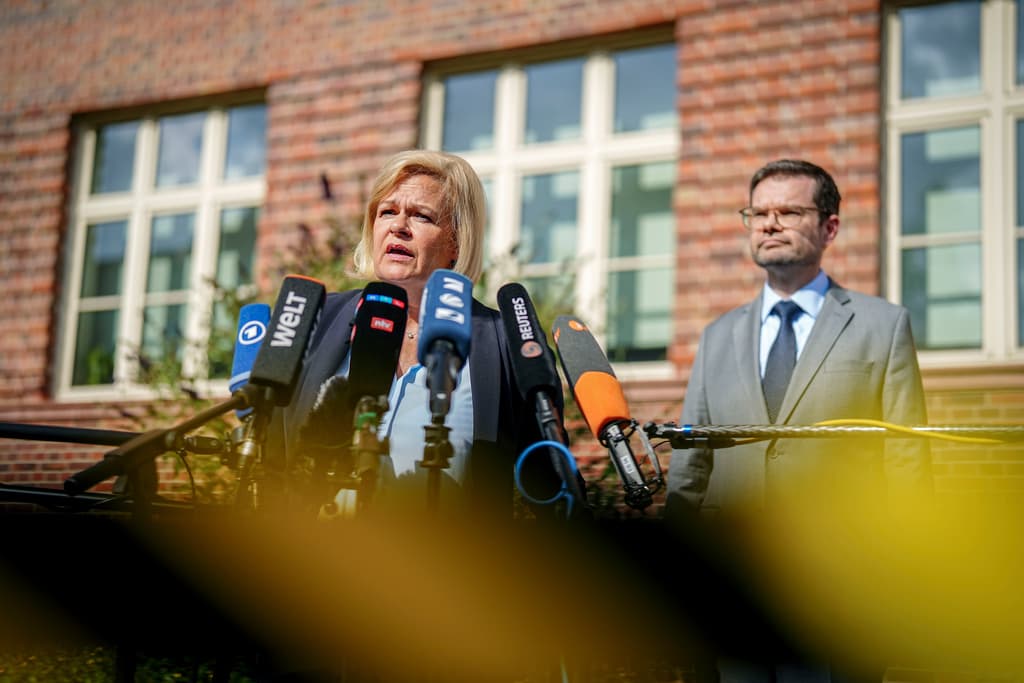Interior Minister Nancy Faeser from the Social Democratic SPD announced on Thursday that a proposal was ready.
The attack in Solingen has shocked us, she said when the proposal was presented.
According to the first reports, the agreement contains changed rules for increased control over migration and extended powers for the country's security and intelligence agencies to combat violent Islamist extremism.
The rules also concern more comprehensive issues regarding individuals' affiliation with terrorist organizations, as the suspected perpetrator and the terrorist organization IS claimed to be behind the attack at a jubilee party in Solingen.
Knife ban tightened
Furthermore, a knife ban will be introduced at larger gatherings and festivals, according to Minister Faeser, who added that a more comprehensive regulatory framework for a general knife ban will be developed.
The three governing parties, the Social Democrats, The Liberals (FDP), and the Green Party, also want to see changes regarding support for asylum seekers, as well as increased opportunities to deport asylum seekers.
Additionally, extended powers to compare information from the internet with facial recognition through biometric data will be introduced, according to Faeser, reports the German newspaper Frankfurter Allgemeine.
Negotiations with the opposition
The 26-year-old Syrian who confessed to the crime after surrendering to the police came to Germany in December 2022. Three people were killed in the attack.
Federal Chancellor Olaf Scholz (SPD) marked after the attack, in which three people were killed, that stricter rules were to be expected. The government also turned to the largest opposition party CDU and its leader Friedrich Merz to reach a broad agreement on a "security pact", and invited continued work with responsible parties from Germany's 16 federal states.






